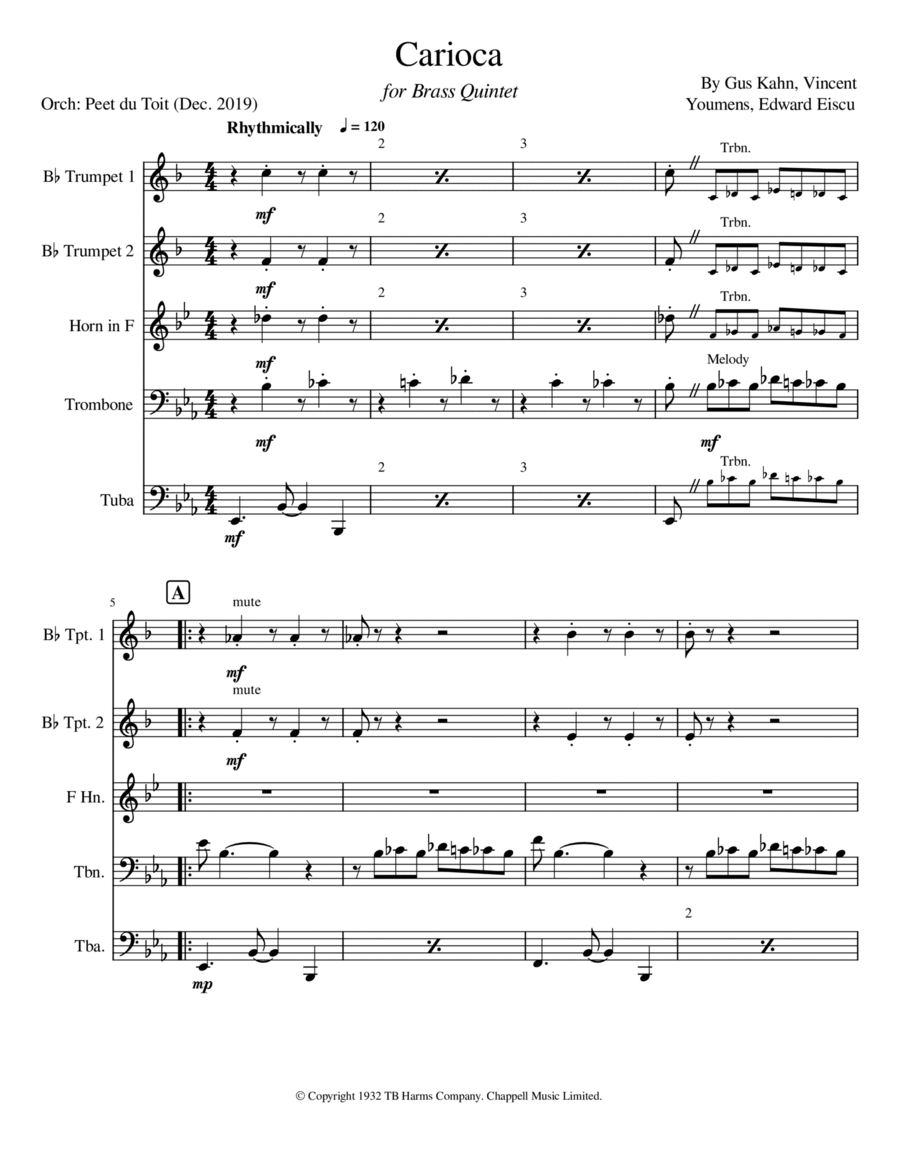Brass Quintet Horn,Trombone,Trumpet,Tuba - Level 2 - Digital Download SKU: A0.1410576 By Caetano Velosa. By Edward Eiscu, Gus Kahn, and Vincent Youmens. Arranged by Peet du Toit. Folk,Pop. 9 pages. Peet du Toit #992996. Published by Peet du Toit (A0.1410576). (The) Carioca is a 1933 popular song with music by Vincent Youmans and lyrics by Edward Eliscu and Gus Kahn, as well as the name of the dance choreographed to it for the 1933 film Flying Down to Rio. It was sung in the film by Alice Gentle, Movita Castaneda and Etta Moten and danced by Fred Astaire and Ginger Rogers as part of an extended production dance number illustrating the ballroom dance. The dance, which was choreographed by the film's dance director, Dave Gould, assisted by Hermes Pan, was based on an earlier stage dance with the same name by Fanchon and Marco.The word Carioca refers to inhabitants of Rio de Janeiro.Astaire and Roger's short dance has historical significance, as it was their first screen dance together. Though billed fourth and fifth, many felt they stole the film, which became a big hit for RKO. The song was nominated for the Academy Award for Best Original Song at the 7th Academy Awards, but lost to an even bigger Astaire and Rogers production number, The Continental from The Gay Divorcee (1934), their next film together and their first starring vehicle. They were billed by RKO as The King and Queen of 'The Carioca.'While the song has become a jazz standard, the dance did not have longevity. Following the success of Flying Down to Rio, an attempt was made to propagate it as a new ballroom dance, without much success. It was a mixture of samba, maxixe, foxtrot and rhumba. The distinctive feature of the dance ā?? at least as portrayed in the movie ā?? was that it was to be danced with the partners' foreheads touching.A French cover of the song was introduced in the comedy movie La CitĆ© de la Peur (1994) along with a dance, also meant in a humoristic way. Both the song and the dance appear in the film that takes place in Cannes during the Cannes film festival in France, and have become a reference for a whole generation in France. 25 years later, in May 2019, the Carioca scene of the movie was celebrated in Cannes with a flashmob dance and by the actors themselves who danced again the mythic scene included in La CitĆ© de la Peur.
